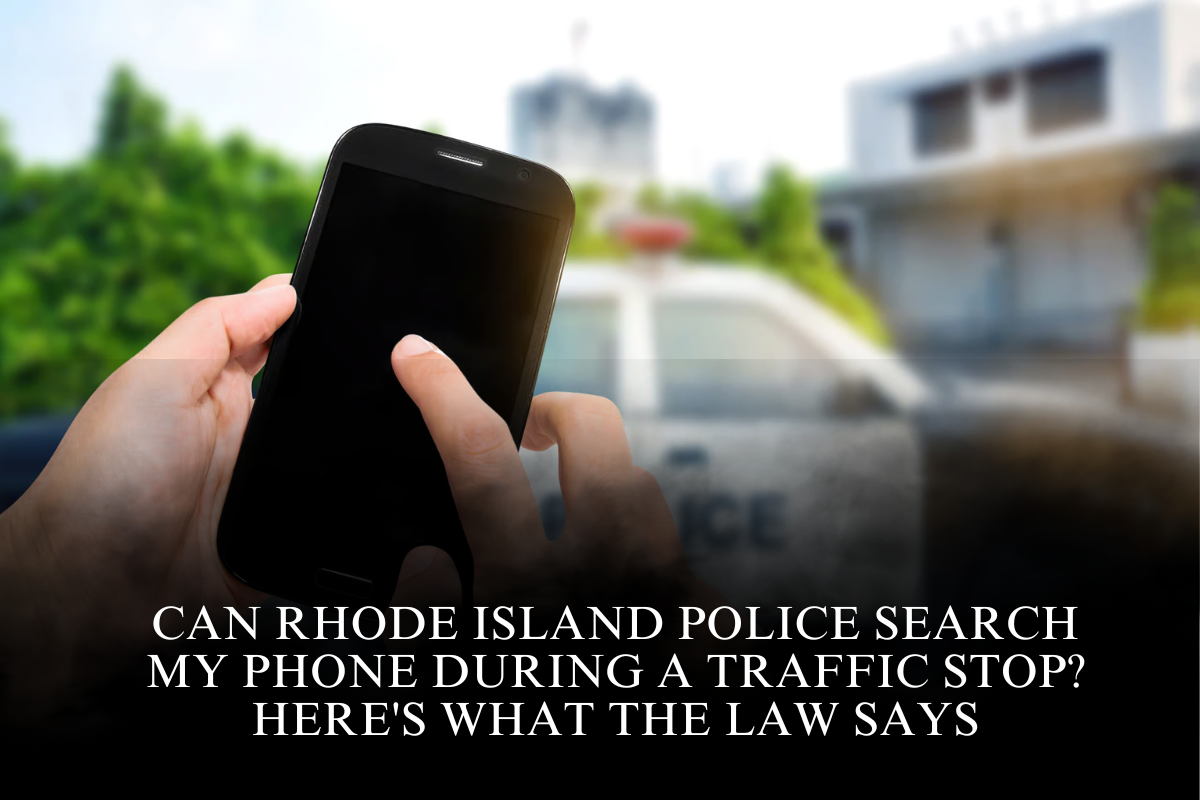When pulled over during a traffic stop in Rhode Island, one common question drivers ask is whether police officers have the legal right to search their phones. In 2025, Rhode Island’s laws and constitutional protections provide clear guidelines about phone searches that any driver should understand.
The Importance of Privacy and the Fourth Amendment
Cell phones contain vast amounts of personal information, so courts have recognized them as requiring strong privacy protections under the Fourth Amendment of the U.S. Constitution, which guards against unreasonable searches and seizures. According to the U.S. Supreme Court decision in Riley v. California (2014), police generally must obtain a warrant before searching the contents of a cell phone—even if the phone is seized incident to arrest.
Rhode Island State Law: Consent and Probable Cause Required
Rhode Island law reflects these protections. Police officers cannot simply ask to search your phone during a routine traffic stop without reasonable suspicion or probable cause to believe criminal activity is occurring. Without such cause, your right to refuse consent to a phone search remains intact.
Additionally, if a search is conducted by police, whether it involves your vehicle, your person, or your phone, it must be documented in detail including the reasons and outcomes of the search. This transparency ensures accountability and legal oversight.
What Conditions Allow Police to Search?
Probable Cause or Reasonable Suspicion: Police can search your phone without consent or a warrant if they have sufficient evidence linking you or your phone to criminal activity. This might arise in serious cases like drug trafficking or violent crimes.
Exigent Circumstances: If the situation demands immediate action to prevent destruction of evidence or address imminent threats, officers might legally conduct a warrantless phone search.
Search Incident to Arrest: Unlike searching the physical person or vehicle, searching a phone after arrest requires a warrant, based on Riley v. California principles.
What You Should Know During a Traffic Stop
When stopped, you have the right to refuse consent to a phone search if police ask. You can clearly state, “I do not consent to any searches.” Refusal cannot be used to imply guilt or immediately justify a search without a warrant or probable cause.
Officers can conduct a limited pat-down if they suspect you are armed and pose a threat, but this does not extend to digital devices or phone content.
Detention Time Limits and Search Scope
Unless there is reasonable suspicion or probable cause, Rhode Island law limits how long police can detain a vehicle during a traffic stop to the time required to handle the traffic violation. Searches without sufficient cause that prolong detention could violate your rights.
Searches must also stay within defined scopes—officers must document and justify why and how searches were conducted. This helps protect individuals from overly broad or arbitrary searches.
What To Do If Your Phone Is Searched
If police search your phone without your consent and without a warrant, the search could be legally challenged as unconstitutional. Keeping calm, knowing your rights, and seeking legal counsel are critical steps if you believe your rights have been violated.
Key Points
Police in Rhode Island generally cannot search your phone during a traffic stop without a warrant or your consent, unless there is probable cause or exigent circumstances.
The Supreme Court ruling in Riley v. California requires a warrant for phone searches incident to arrest.
You have the right to refuse consent to a search of your phone.
Searches and detentions must be justified by reasonable suspicion or probable cause and be documented thoroughly.
If your phone is searched unlawfully, legal remedies are available to challenge such violations.
Understanding these protections empowers motorists in Rhode Island to safeguard their privacy rights during interactions with law enforcement. It ensures that while officers enforce traffic laws and investigate crimes, citizens are shielded from intrusive, unwarranted digital searches that violate constitutional guarantees.
Knowing your rights ahead of time can help maintain control and confidence during a traffic stop, and preserve your privacy in everyday encounters with police.
Sources
(https://law.justia.com/codes/rhode-island/title-31/chapter-31-21-2/section-31-21-2-5/)
(https://www.dot.ri.gov/safety/distracted_safety.php)
(https://www.providenceri.gov/wp-content/uploads/2021/07/330.03-Search-Seizure.pdf)
(http://www.ripd.org/knowyourrights.html)
(https://law.justia.com/codes/rhode-island/title-31/chapter-31-21-1/section-31-21-1-4/)











